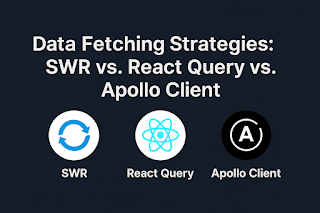Cloud Computing Basics: AWS, Azure, and GCP
Cloud computing has revolutionized the way businesses build and deploy applications. Gone are the days of bulky servers and rigid infrastructure. Today, companies of all sizes rely on cloud platforms to scale efficiently, innovate faster, and reduce operational costs.
In this post, let’s break down the core concepts of cloud computing and explore how the three dominant players—Amazon Web Services (AWS), Microsoft Azure, and Google Cloud Platform (GCP)—stack up.
What is Cloud Computing?
Cloud computing delivers computing services—including servers, storage, databases, networking, software, and more—over the internet (“the cloud”). This allows for on-demand access, pay-as-you-go pricing, and scalable infrastructure without the need for physical hardware.
Key Cloud Computing Models
1. IaaS (Infrastructure as a Service)
Provides virtual machines, storage, and networking.
Example: AWS EC2, Azure Virtual Machines, GCP Compute Engine.
2. PaaS (Platform as a Service)
Offers a platform for developers to build and deploy applications.
Example: AWS Elastic Beanstalk, Azure App Service, GCP App Engine.
3. SaaS (Software as a Service)
Delivers software over the internet as a service.
Example: Google Workspace, Microsoft 365, Salesforce.
AWS vs Azure vs GCP – A Comparative Overview
When to Choose Which?
AWS: Ideal for startups to enterprises needing breadth of services and mature infrastructure.
Azure: Best suited for Microsoft-centric organizations, especially those using .NET, Office, and Windows.
GCP: Excellent for data-heavy apps, machine learning, and modern containerized apps.
Real-World Use Cases
Netflix runs on AWS for massive scale.
Adobe uses Azure to deliver creative cloud services.
Spotify relies on GCP for data and analytics.
Final Thoughts
Whether you're a developer building the next big app or an enterprise migrating workloads, understanding cloud platforms is essential. AWS, Azure, and GCP each have their strengths, and the best choice often depends on your use case, existing stack, and growth plans.
Cloud computing is no longer optional—it’s the new normal.
#CloudComputing #AWS #Azure #GCP #CloudInfrastructure #DevOps #SaaS #PaaS #IaaS #WebDevelopment #TechTrends #StartupTools #SoftwareEngineering #Serverless #LinkedInTech




Comments
Post a Comment